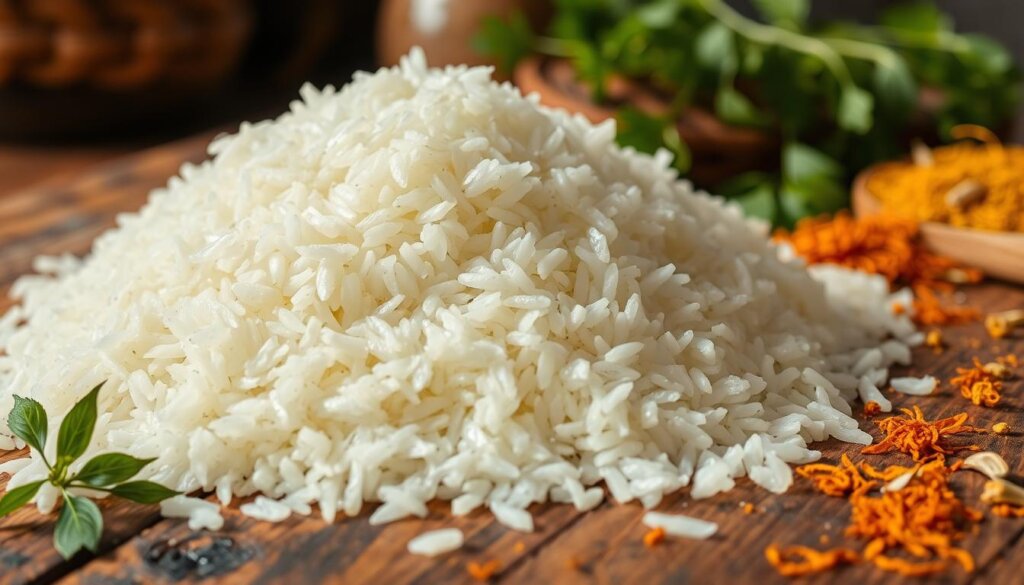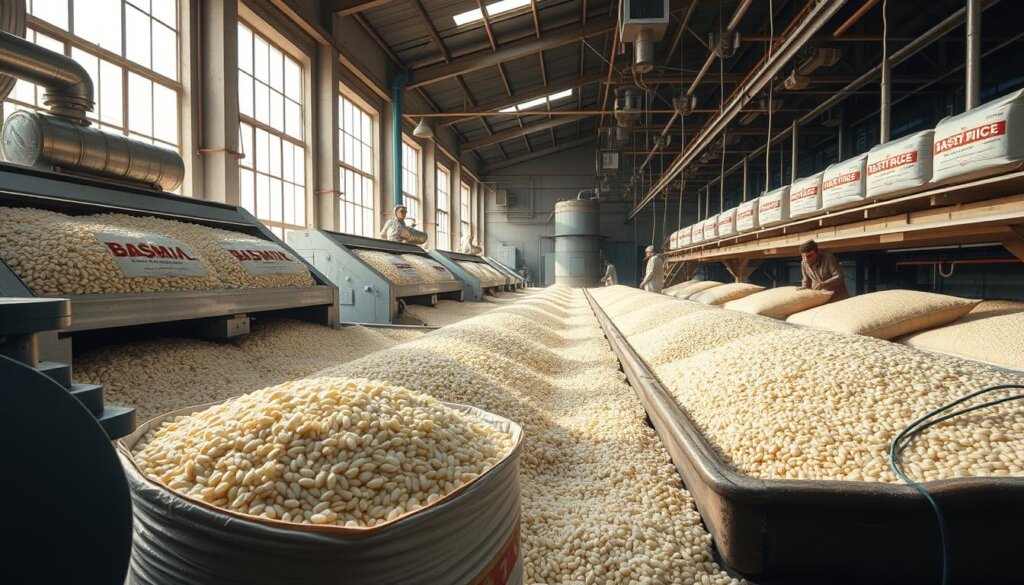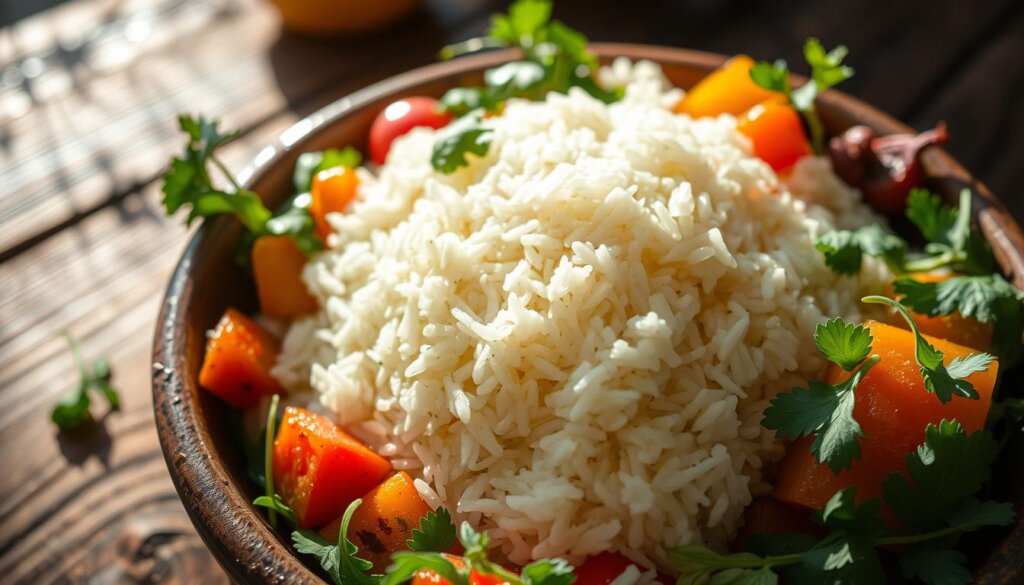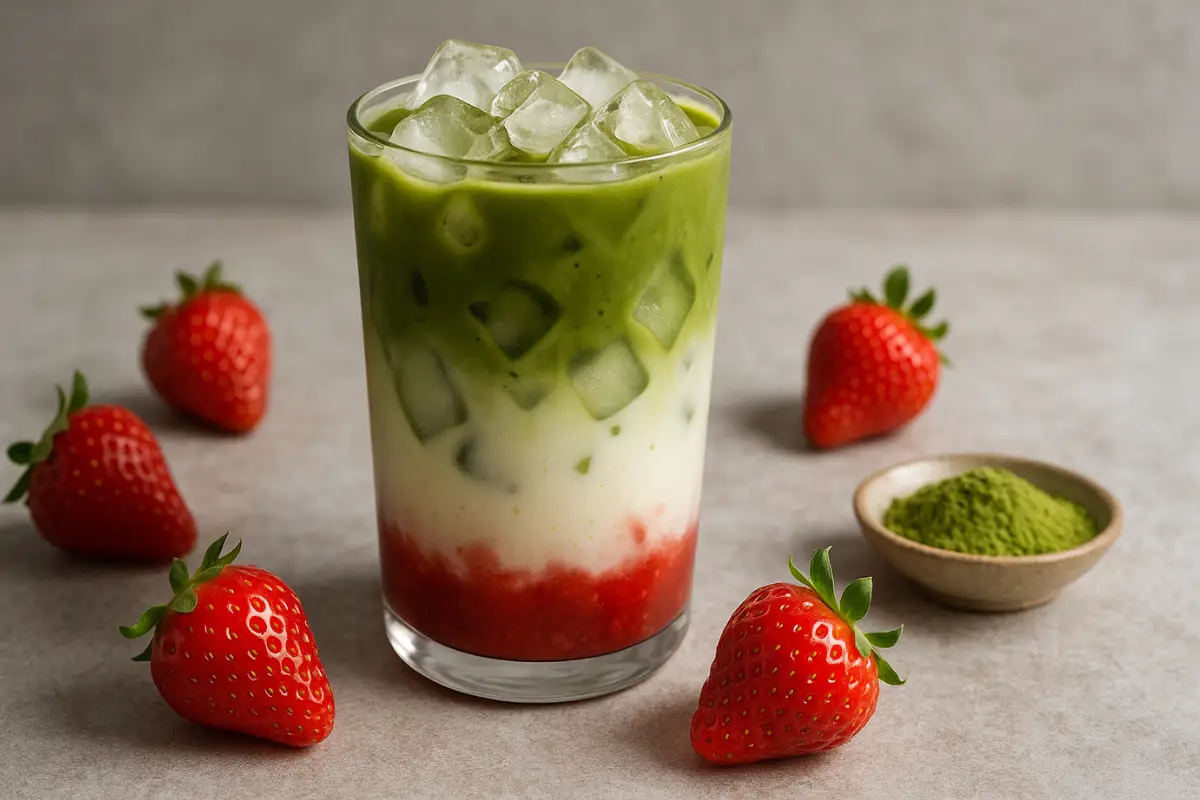Thinking about a gluten-free diet for celiac disease? You might wonder if basmati rice is safe to include. As a staple food in over 100 countries, understanding the gluten-free status of basmati rice is essential. Naturally gluten-free, basmati rice is an excellent choice for those following a gluten-free diet.
For individuals with celiac disease, maintaining a strict gluten-free lifestyle is vital. While basmati rice itself is gluten-free, it’s crucial to ensure it hasn’t been contaminated with gluten during processing or packaging. To avoid cross-contamination, look for basmati rice labeled with a gluten-free certification.
If you’re exploring gluten-free grains and recipes, check out our guide on Which Rice Is Not Gluten-Free , or pair basmati rice with our Gluten-Free Chicken Stir-Fry Recipe. For more tips on safe gluten-free grains, learn about Gluten Content in Near East Rice Pilaf.
Basmati rice, with its nutty flavor and fluffy texture, is not only versatile but also packed with essential nutrients like magnesium, phosphorus, and selenium. By choosing certified gluten-free options, you can enjoy this nutritious grain as part of your gluten-free diet.
Table of contents
Understanding Basmati Rice and Gluten Content
Many think all rice has gluten, but that’s not true. Rice is naturally gluten-free, making it great for those who can’t eat gluten. Basmati rice is loved for its long shape and smell.
Many types of rice are gluten-free, like brown, white, and jasmine rice. Even sticky rice is gluten-free, despite its sticky texture. But, basmati rice might get gluten from processing or storage.

Choosing a trusted brand is key to avoid gluten. Tilda Rice is gluten-free and safe for those with Coeliac Disease. When buying basmati rice, pick products labeled gluten-fre with less than 20 ppm gluten.
Here are some tips for eating basmati rice:
- Check the label for gluten-free certification
- Avoid basmati rice processed with gluten grains
- Watch out for cross-contamination risks in storage and handling
Cross-Contamination Risks in Basmati Rice Processing
Basmati rice processing faces a big risk of gluten contamination. This can happen at any step, from picking to storing, and even when moving it. Knowing where gluten can get into basmati rice is key.
Studies show gluten can get into basmati rice in many ways. For example, if a place handles both gluten grains and basmati rice, contamination is likely. So, it’s vital to follow strict handling and processing rules to keep basmati rice glutenless.
Common Sources of Cross-Contamination
Some common places where cross-contamination happens include:
- Shared equipment or facilities
- Not cleaning and sanitizing well enough
- Not testing for gluten often enough
It’s important to tackle these issues to keep basmati rice safe for people with gluten issues. By knowing the risks and taking steps to avoid them, the basmati rice industry can offer a safer choice for everyone.

Manufacturing Facility Concerns
Places that make basmati rice need to be very careful to avoid contamination. They must clean well, sanitize properly, and test for gluten often.
| Facility | Gluten Content Testing | Cleaning and Sanitation Procedures |
|---|---|---|
| Facility A | Regular testing | Proper procedures in place |
| Facility B | Occasional testing | Inadequate procedures |
By focusing on safe basmati rice making and handling, makers can lower the chance of contamination. This way, they can offer a safer product to consumers.
Is Basmati Rice Gluten Free and Safe for Celiacs?
People with celiac disease need to be careful about what they eat. Basmati rice is naturally without gluten, making it a good choice. But, it’s important to make sure it’s processed and stored right to avoid gluten contamination.
For those with celiac disease, sticking to a gluten-free diet is key. Basmati rice can be a safe and healthy choice. But, it’s important to pick certified gluten-free basmati rice. Here are some things to look for:
- Look for certification from reputable organizations, such as the Gluten-Free Certification Organization (GFCO) or the Celiac Support Association (CSA)
- Check the ingredient label to ensure that the rice is processed in a dedicated gluten-free facility
- Be aware of the risk of cross-contamination during transportation and storage
About three million Americans have celiac disease, and one to six percent of the population has non-celiac gluten sensitivity. For them, eating glutenless foods like basmati rice is a must. Choosing certified gluten-free basmati rice is important for their health.

It’s also important for those with celiac disease to watch out for arsenic in their food. Rice, including basmati rice, can have high levels of arsenic. To stay safe, it’s good to eat a variety of gluten-free foods, like quinoa, corn, and millet.
| Gluten-Free Grains | Arsenic Levels |
|---|---|
| Basmati Rice | Varies by type and processing |
| Quinoa | Generally low |
| Corn | Generally low |
| Millet | Generally low |
By following these tips and choosing certified gluten-free basmati rice, people with celiac disease can have a safe and healthy diet.
Choosing and Preparing Safe Basmati Rice
When picking glutenless basmati rice, think about cross-contamination risks. Choose certified gluten-free basmati rice from trusted sources. For more on safe foods, check out gluten-free recipe websites.
It’s key to prepare glutenless basmati rice safely to avoid cross-contamination. This means using separate tools and cleaning areas well. Here are some tips:
- Keep gluten-free basmati rice in a special container to avoid contamination.
- Use a different pot and tools for cooking glutenless basmati rice.
- Know the risks of cross-contamination during processing and packaging.
For those with celiac disease, these steps are very important. By picking certified gluten-free basmati rice and preparing it right, you can enjoy it safely. This way, you can eat this nutritious and tasty food without gluten worries.
Basmati rice is a great option for those with gluten intolerance or sensitivity, as it is naturally gluten-free and can be prepared safely with proper precautions.
Conclusion
Basmati rice has a rich history and a unique aroma. It can be a safe and nutritious choice for those with celiac disease or gluten sensitivities. As a naturally gluten-free grain, it offers a tasty and flexible option for a gluten-free diet.
But, it’s important to choose certified gluten-free basmati rice. This helps avoid cross-contamination during processing and handling.
For those with celiac disease, which affects about 1% of the U.S. population, or gluten sensitivity, basmati rice is a great choice. It’s a nutritious and satisfying alternative to gluten-containing grains. By picking certified glutenless basmati rice and following proper preparation and storage, you can enjoy its benefits while keeping your health in mind.
FAQ
Is basmati rice gluten-free?
Yes, basmati rice is naturally gluten-free. This makes it a good choice for people with celiac disease or those on a gluten-free diet.
What is the risk of cross-contamination in basmati rice processing?
Basmati rice can get contaminated with gluten during processing, transport, and storage. It’s important to know and avoid these risks.
How can I ensure basmati rice is safe for individuals with celiac disease?
Pick certified gluten-free basmati rice. Use the right preparation methods and store it well to avoid contamination.
What are the common sources of cross-contamination in basmati rice processing?
Cross-contamination can happen in the factory, during transport, or in storage. This is because of gluten in other products or equipment.
What are the medical expert recommendations regarding the safety of basmati rice for individuals with celiac disease?
Doctors usually say basmati rice is safe for people with celiac disease. But, it must be gluten-free and prepared correctly.
How should I store and prepare basmati rice to ensure it remains glutenless?
Keep certified gluten-free basmati rice in a clean, sealed container. Follow proper preparation steps to avoid contamination.





